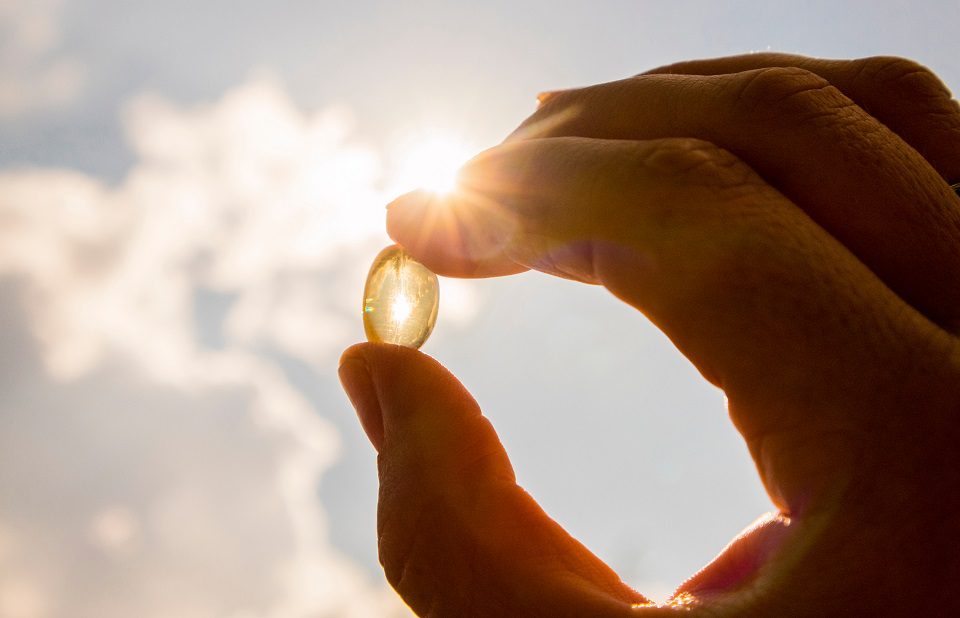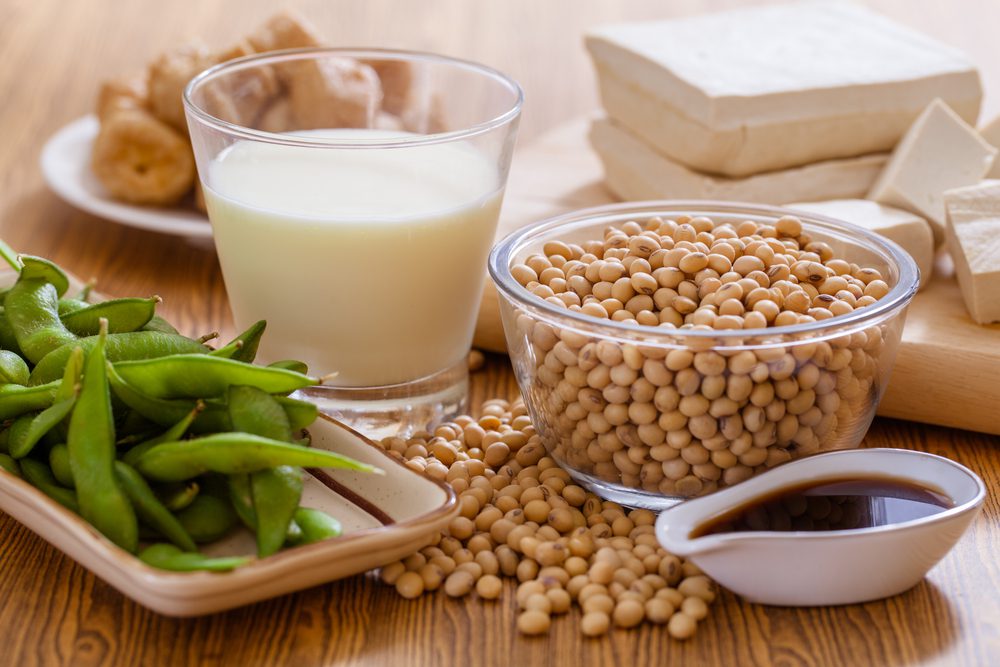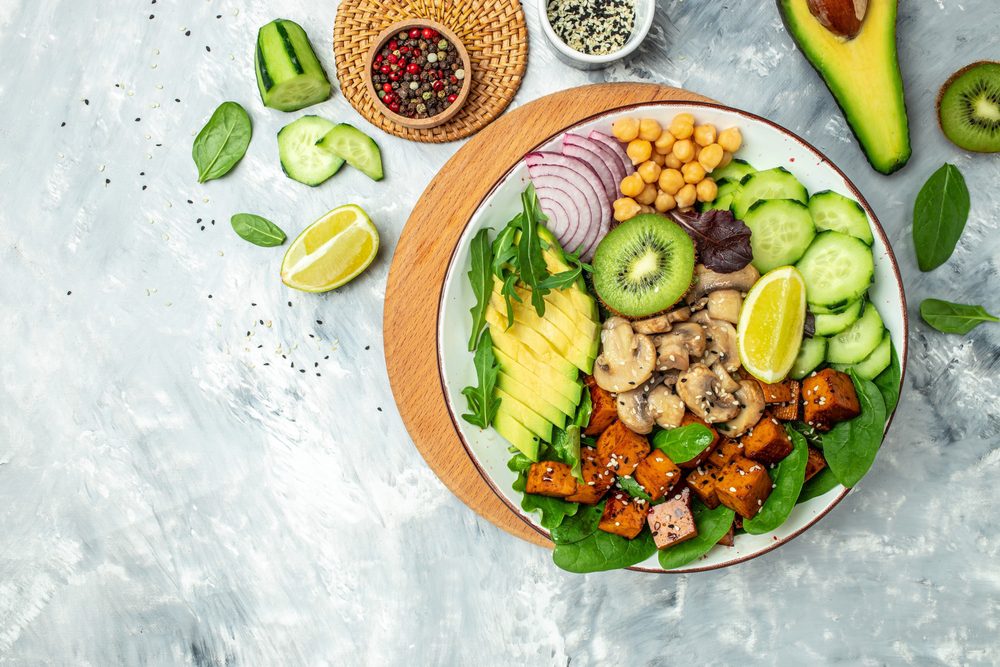Indulging Health presents: Things to Know Before Going Vegan
Food choices must be made based on what feels right to you. Veganism has come a long way, but just because so many people ditched the meat, including celebrities like Beyoncé, Bill Clinton, Natalie Portman, and Paul McCartney, it doesn’t mean that you should feel pressured to do the same. The decision is all yours.
The health and environmental benefits of a vegan diet are numerous, but if you’ve been a life-long meat eater and you’re trying to make a change, it may be hard to know where to start. This being said, here are some things to know before going vegan!

1. Vitamin D3 and B12 supplementation are essential
Vitamin D3 is required for the body to absorb calcium. A deficiency of this vitamin can lead to muscle pain, hair fall, and weaker bones. Vitamin B12, on the other hand, helps to keep the body’s blood cells and nerves healthy. Low levels of it can lead to tiredness, weakness, nerve problems, and anemia.
One of the most important things to know before going vegan is that both vitamin D3 and B12 are primarily found in animal products, so a supplement will be essential if you’re going to ditch the meat.
Sunlight is an excellent source of vitamin D, but if you’re someone who doesn’t get a lot of sun exposure, a vitamin D3 supplement becomes even more important.
2. Explore different protein sources
There’s a misconception saying that you can’t get enough protein on a plant-based diet. That’s obviously wrong. One of the most important things to know before going vegan is that there are plenty of other protein sources that don’t come from animals.
Starting with soybeans, tofu, quinoa, edamame, beans, lentils, pulses, tempeh, seeds, and nuts, you have a wide range of options to choose from. Find those protein sources you like the most and stick with them. Don’t eat foods that you don’t like just because they offer more proteins.
According to vegan dietitians, every meal should contain protein. The Institute of Medicine says that an adult should get at least 1 gram of protein daily for every kilogram of body weight, or about 0.5 grams per pound.
3. Vegan doesn’t always mean healthy
The next thing to know before going vegan is something that may surprise you: ditching meat doesn’t mean you’ll be healthier. With an ever-expanding selection of meat alternatives and junk food, it isn’t so easy to follow a healthy vegan diet anymore.
Several years ago, you’d struggle to find a vegan burger, pizza, or cake. But now, these goods are everywhere, and while they don’t contain all the nasty stuff found in animal products, they still aren’t as healthy as you’d thought.
As the old saying goes, “everything in moderation,” so you don’t have to completely avoid these plant-based alternatives. However, if you want to see the health benefits of veganism, it’s best not to consume them too often.
Instead, focus on eating a whole-food plant-based diet made up of vegetables, fruits, legumes, and grains, with the occasional vegan burger or cake.
4. Reach out for non-diary sources of calcium
Since you can no longer rely on dairy products, it’s important to meet your calcium requirement. One of the most important things to know before going vegan is that calcium has a key role in your body, and low levels of it can lead to serious health issues. According to experts, the reference daily intake of calcium is 1,000 mg per day for adults.
If you’ve switched to a vegan diet, make sure you include non-dairy sources of calcium like spinach, kale, bokchoy, almonds, fox nuts, sesame seeds, figs, soybeans, plant-based milk, and yogurt. Food products like tofu, cereals, and fruit juices are also known to be fortified with vitamin D and calcium.
Read on to discover other things to know before going vegan!

5. You don’t need to avoid soy products
There’s a common misconception that soy products are bad for you, and if you jump on the no-meat-eggs-or-dairy bandwagon, you should avoid them. Some anti-vegan people even spread the false notion that consuming soy gives men boobs due to high levels of estrogen.
One of the most important things to know before going vegan is that soy doesn’t threaten your health. If soy had the ability to do what those anti-vegan people pedal, it would be the best-selling supplement in the beauty industry and leave cosmetic surgeons without a job!
Moreover, soy doesn’t contain human estrogen but instead a plant version called “phytoestrogen”. This doesn’t act on humans, only plants; thus, soy is completely safe for human consumption.
6. Food labels will be your new best friend
Experts point out that one of the most surprising things to know before going vegan is that many commercial food products you’d thought were safe for vegans contain ingredients that come from animals.
When you’re still learning which ingredients are vegan and which are not, it can certainly add some time to your shopping. While before ditching meat, you could probably get around the grocery store isles in 20 minutes for your weekly shop, as a new vegan, you’ll need to spend a bit longer checking ingredients.
Gelatine and milk powder are the top culprits for hiding in foods that may seem vegan at first glance, and you’ll need to ensure you check each product before tossing it into your basket.
Moreover, many artificial preservatives and colors used in food products could be of animal origin, so reading the ingredient list becomes crucial if you want to take veganism seriously.
7. Your favorite treats might already be vegan
Love Biscoff? Good news—they are vegan! Ritz crackers? Vegan! Oreos? You guessed it, vegan!
This is one of those things to know before going vegan because it shows you that you don’t have to give up on everything you used to eat. There are many treats that you might not realize are actually vegan, so you can still eat them.
Some specially made vegan treats can be a lot more expensive, so knowing that cheap products like Biscoff and Oreos are vegan can stop a no-meat, egg, or dairy diet from being too difficult to maintain.
8. It’s okay to go slow but steady
Did you slip up? Don’t sweat it. We’ve all been there, whether it was accidental or not. One of the most important things to know before going vegan is that the path to this dietary style is more of a zigzag than a straight line.
You’re changing pretty much what you’ve been having your whole life, so there may be some bumps along the road, and if you slip, just consider it a learning experience and keep moving forward.
We live in a very non-vegan world, and it’s easy to assume something is vegan when in fact it isn’t. Don’t focus on beating yourself up about one mistake you made. It’s fine; you’re doing the best you can.

9. Going vegan doesn’t have to cost more
Another misconception about veganism is that it’s too expensive. But this doesn’t have to be the case.
One of the things to know before going vegan is that while plant-based alternatives like meat replacements and dairy-free cheeses can often be more expensive compared to their animal-based counterparts, they aren’t essential when it comes to living a vegan lifestyle.
Instead, seasonal vegetables and fruits and grains like pasta, rice, bread, and canned beans are actually some of the cheapest foods you’ll find at the grocery store—and they are vegan!
Take beans on toast, for example. It’s a nutrient-dense and protein-packed meal, but it costs next to nothing. Veganism can be cheap; it’s about the choices you make.
10. Be prepared to fart more
Last but not least on our list of things to know before going vegan is that you’ll fart more. When you ditch the meat, you may be a bit gassier than before while your body adjusts to receiving more veggies and fruits.
This happens because of the increased intake of fiber found in these foods, as well as in pulses and whole grains. Don’t fret, though. It will most likely be temporary while your digestive system gets used to the higher levels of fiber.
However, what isn’t temporary is frequent bowel movements. It’s common for vegans to poop more often than meat-eaters, but this is perfectly OK and can actually benefit your bowel health.
Want to learn more about the subject? Here’s a beginneer’s book where you’ll find more things to know before going vegan.
If you liked our article on things to know before going vegan, you may also want to read Not All Processed Foods Are Bad for Your Health! Here Are 8 Examples.













